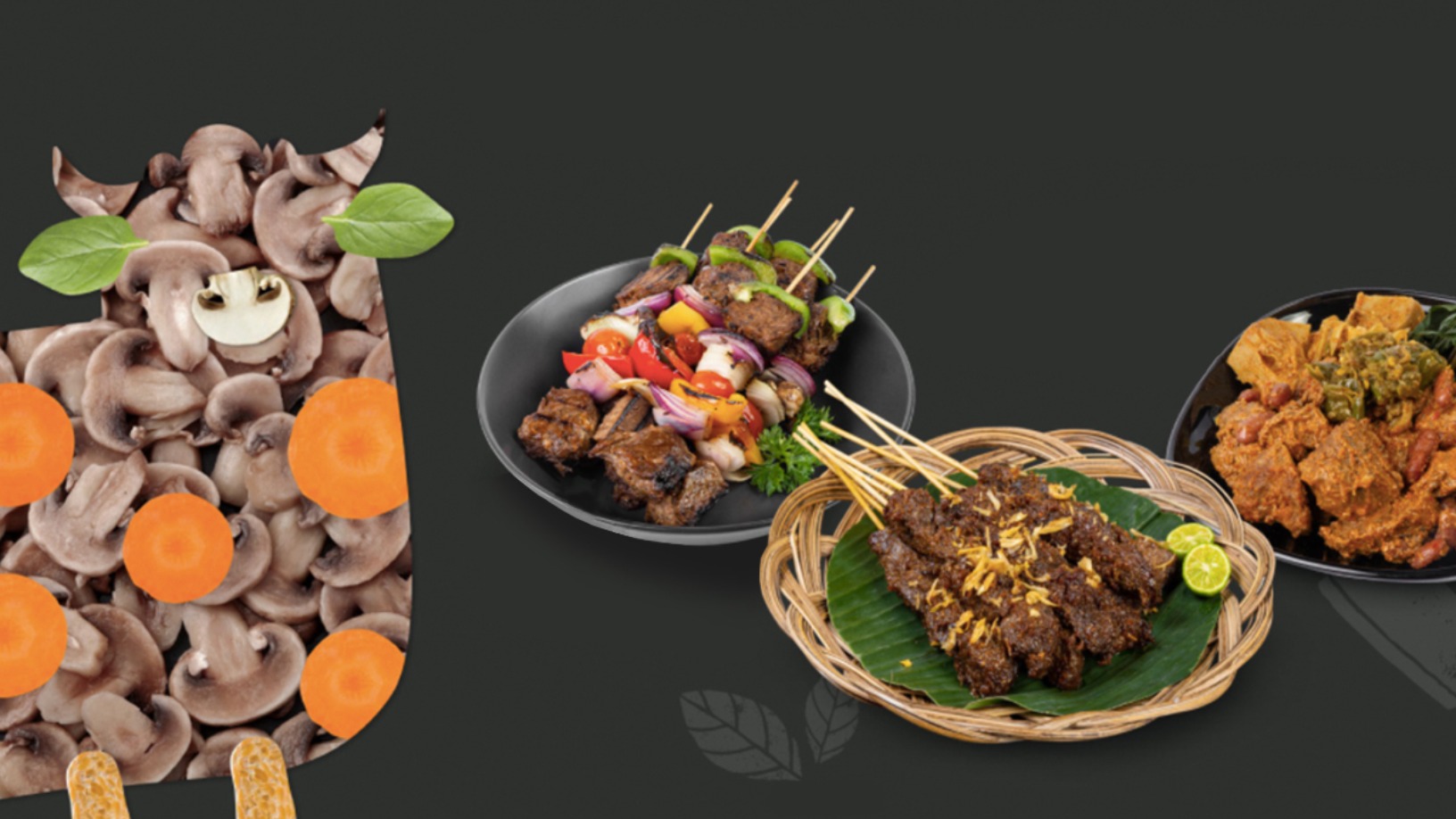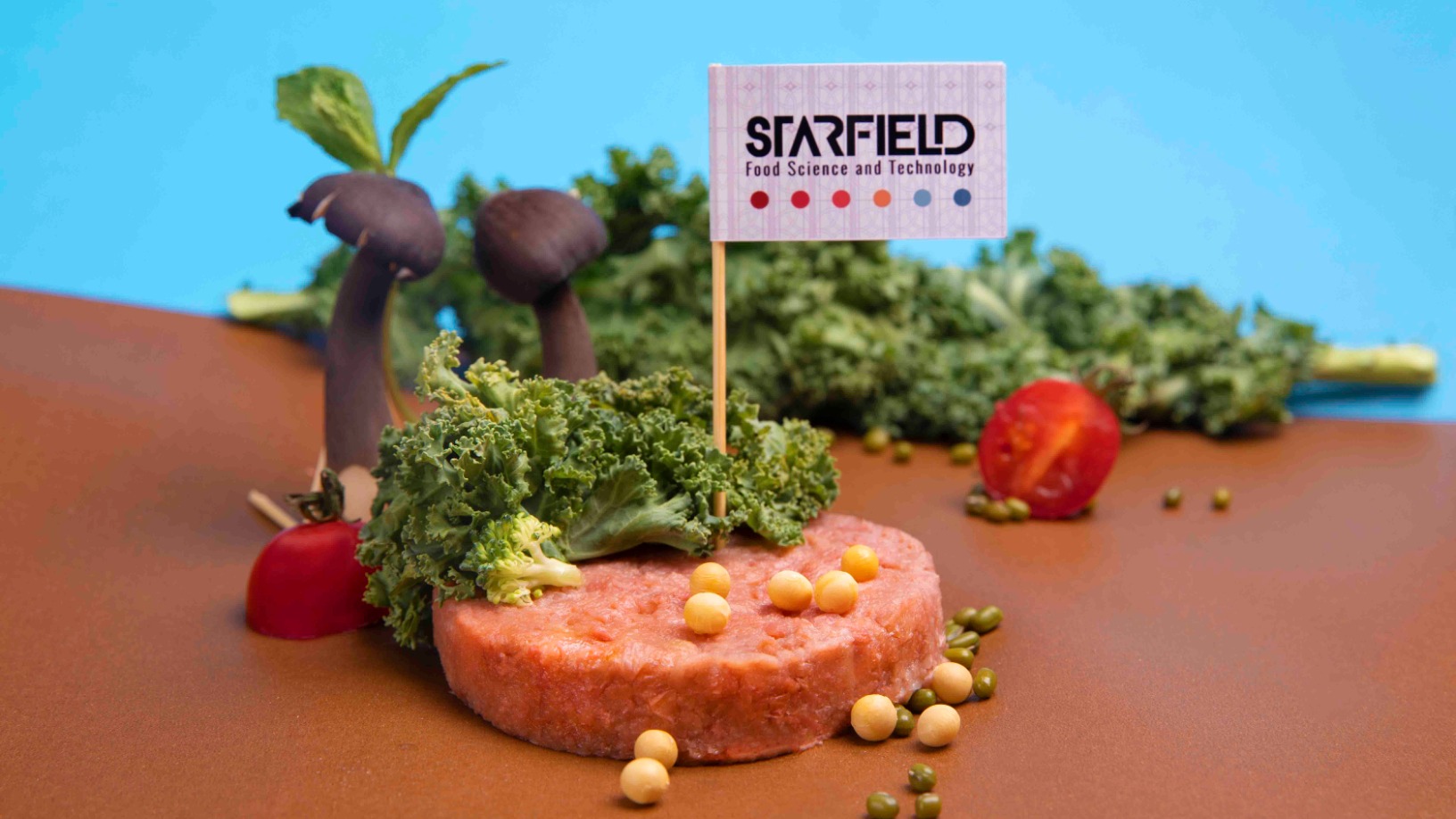Indonesian plant-based protein startup Green Rebel Foods plans to start raising Series A financing by end-2021 to fund expansion, after a $2m seed round earlier this year and launching its new line of faux beef and chicken steak products.
“We plan to focus on regional expansion in the next two to three years," Helga Angelina Tjahjadi, CEO and co-founder of Green Rebel Foods, said in an interview. “By the end of this year, we will enter the Singapore and Philippine markets.”
At home, Green Rebel will also launch its products in an Indonesian “premium lifestyle supermarket” by the final quarter of this year. Tjahjadi declined to say how much the company expects to raise next.
Previously known as Green Butcher, Green Rebel Foods started last September as a spinoff of plant-based eatery chain Burgreens, which Tjahjadi also heads with co-founder Max Mandias. Its seed funding in February 2021 was led by Unovis Asset Management and Teja Ventures. Green Rebel has worked with Starbucks Coffee, Abuba Steak and Pepper Lunch to bring plant-based foods to a wider range of consumers in Indonesia.
Plant-based steak
Tjahjadi said the new funds would also be used to expand the company’s food manufacturing capacity.
Green Rebel’s current bestsellers are its newly launched “beefless” steak and plant-based fillet that mimics chicken meat. Different from the company’s previous offerings, these products seek to emulate the texture of whole-cut real meat, making them more compatible with a wider range of Asian recipes.
There are also others, such as the Beefless Rendang marinated in Padang-style rendang curry to Chick'n Satay with a spicy Sambal Taichan sauce, available in colorful local flavors and are ready to eat upon 10 minutes of heating.
“Major plant-based food players in Asia are mostly selling minced and patty-type products," Tjahjadi said. "Our approach is to make meat analogues that are compatible with Asian cuisines. To do this, we have to make textured products that emulate the fibrous texture of meat."
Tjahjadi said that shiitake mushrooms are used to achieve the taste and texture that approaches real meat. Soy is also a key ingredient to increase protein content and complete the amino acid profile of the products. Finally, coconut oil is used to emulate the taste of animal fat.
The company created the steak products partly to raise awareness of the environmental damage caused by beef production. “We figured that beef had the biggest environmental impact in the world, and yet the steak culture is now beginning to grow rapidly [here],” Tjahjadi said, referring to the rising popularity of steakhouses in the past few years. “We want to make a statement that it’s okay to enjoy steak, but you can pick a steak that’s better for you and the environment.”
To develop the products, Green Rebel collaborated with Abuba Steak, one of Indonesia’s most famous steakhouse brands, and Pepper Lunch, a Japanese fast-service steak brand popular in Indonesia. The idea was that if these restaurants began serving plant-based meat, customers would be thinking more seriously about the downside of meat consumption and the benefits of plant-based food.
Green Rebel surveyed Burgreens customers who tried its products: 9 out of 10 were unable to tell the difference between the plant-based steak and real beef steak, Tjahjadi said. That number dropped to 8 out of 10 among Abuba Steak customers, a difference Tjahjadi attributed to Abuba customers’ knowing their steak well and taste preferences. However, she said that even though the Abuba customers could tell the difference, it did not detract from enjoying the plant-based steak.
“Whether or not it [Green Rebel’s plant-based steak] can emulate the texture of real meat is not always the most important factor,” she added.
Making plant-based diet mainstream
Tjahjadi and Mandias, who is Green Rebel’s Chief Innovation Officer, first considered creating a B2B and retail spinoff in 2019, after Burgreens celebrated its sixth anniversary.
“We considered that in order to stave off catastrophic climate change, we need to make major changes to our lifestyle, faster,” Tjahjadi said, adding that changes in dietary patterns is one of the pillars to a more sustainable lifestyle.
The two believed that in order to influence dietary patterns in Indonesia and the rest of Asia toward a plant-based diet, they would need a business that could scale faster than what Burgreens could manage.
“We tried to find a new concept that is more scalable and can work with established networks and supply chains,” Tjahjadi said.
Initially, the plan was to launch Green Rebel in 2021. However, the Covid-19 pandemic had a hand in accelerating the project, and business started in September 2020 instead. “The pandemic meant that the Burgreens business was slowing down, and we had excess production capacity. So we decided to make use of that capacity to launch Green Rebel," Tjahjadi said.
The pandemic-related economic downturn also did lead to some investors pulling out of Green Rebel’s seed funding round, she recalled. That turned out to be a “blessing in disguise,” as the delayed close gave the founders the opportunity to meet Unovis Asset Management. A global VC firm focused on the alternative protein sector, Unovis’s investments to date include Chinese plant-based meat startup Starfield, Swedish oat milk brand Oatly and Beyond Meat, which it has exited.
“They were very much aligned with our mission and business plans,” Tjahjadi said of Unovis. “Teja Ventures stayed with us throughout as well, despite the pandemic.” Teja Ventures, a VC firm focusing on Southeast Asian women-led businesses, also invested in Burgreens in 2020.
Democratizing plant-based food for Asia
With Covid lockdowns and restrictions on activities in Indonesia, the food service industry has experienced slower growth, which Tjahjadi said has affected Burgreens as well as Green Rebel’s restaurant partners. A planned product launch with IKEA also had to be delayed as a result of Indonesia returning to stringent anti-Covid measures. “The way restrictions are extended by two weeks at a time makes it hard to plan,” she said.
To brace against the uncertainties in its industry, Green Rebel is diversifying its sales channels. Currently, retail consumers can buy Green Rebel’s ready-to-cook products through the company’s official online store on the Tokopedia platform, as well as at Burgreens branches. At the end of this year, these products will also be available at a “premium lifestyle” supermarket chain, which Tjahjadi declined to name. In October, Green Rebel will launch a new product that will join the supermarket retail line-up next year.
Regional expansion is also in the works. “We are in talks with prospective distributors to make our products available in other Southeast Asian countries by next year. We plan to enter the B2B market first, before B2C," Tjahjadi said. Longer term, Green Rebel is considering expanding to Europe and the US, with the help of its well-connected investors like Unovis.
To support such plans, Green Rebel Foods will begin raising a Series A round at the end of this year, with most of the proceeds going toward building a new manufacturing facility with higher capacity. This will be one of the biggest expenses for the company, Tjahjadi said, as the facility needs to adhere to international standards.
“Our mission is to democratize plant-based meat in Asia. We want to make it as affordable to as many people as possible, while sticking to our clean label promise,” Tjahjadi said.
She added that while Green Rebel and Burgreens products are still primarily consumed by the upper-middle class in Indonesia, Green Rebel wants to make them more affordable, to the point where fast-food restaurants can begin serving plant-based meat at prices equivalent to those of animal meat.
Currently, Green Rebel’s products are still more expensive than animal meat. A 300g pack of Green Rebel’s Beefless Steak is priced at IDR 75,000, while beef is usually priced between IDR 100,000 and IDR 160,000 per kilogram.
“With a bigger production scale, we can make our products more affordable,” Tjahjadi said.












